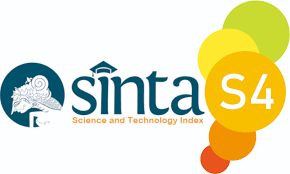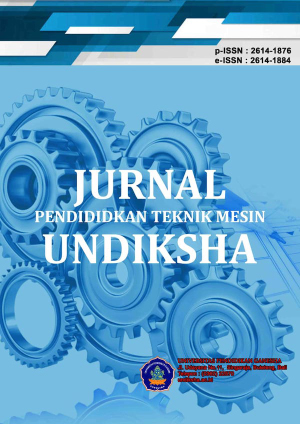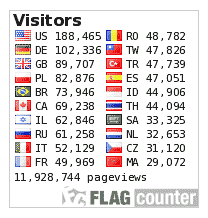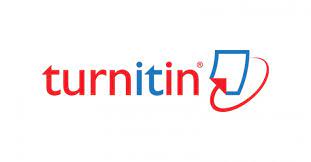Peningkatan Kemampuan Kompetensi Guru Adaptif Melalui Program Keahlian Ganda Di Sekolah Menengah Kejuruan
DOI:
https://doi.org/10.23887/jptm.v10i1.44161Abstract
Tujuan dari penelitian ini adalah untuk mengetahui kemampuan guru setelah mendapat program keahlian ganda yang merubah statusnya dari guru adaptif menjadi guru produktif . Pendekatan penelitian yang digunakan dalam penelitian ini adalah deskriptif kualitatif, yaitu mengambarkan tingkat kemampuan guru dalam mengajar bidang keahlian baru yang didapat setelah mengikuti Program Keahlian Ganda. Subyek penelitian ini adalah guru yang sudah mengikuti dan sudah lulus Program Keahlian Ganda. Sedangkan objek yang diteliti berada di SMKN I Tampaksiring kabupaten Gianyar Bali. Populasi penelitian adalah guru yang sudah mengikuti PKG dan siswa bidang keahlian yang diajarkan oleh guru tersebut. Data dalam penelitian ini data akan dikumpulkan melalui interview mendalam, observasi kelas, dan studi dokumen. Dari penelitian yang dilakukan dapat diambil kesimpulan bahwa kemampuan guru dilihat dari persiapan guru sebelum mengajar adalah dapat menguasai materi pembelajaran , mampu memanfaatkan sumber belajar dalam pembelajaran, dan mampu memberikan gambaran manfaat pembelajaran. Untuk pelaksanaan guru keahlian ganda dalam mengajar memiliki kemampuan dalam menjelaskan materi pembelajaran dari awal sampai akhir. Sedangkan evaluasi hasil analisis kemampuan guru keahlian ganda adalah pertama dengan adanya program keahlian ganda dapat meningkatkan kompetensi keahlian guru dan kedua adanya forum komunikasi antar guru saling berbagi pengalaman dan ilmu. Dalam hal ini tanggapan siswa sangat positif dan antusias dalam pembelajaran di kelas sehingga dapat memahami dan mengerti dengan apa yang diajarkan guru.
Kata kunci : guru adapti,guru produktif, keahlian ganda.
The purpose of this study was to determine the ability of teachers after receiving a dual expertise program that changed their status from adaptive teachers to productive teachers. The research approach used in this research is descriptive qualitative, which describes the level of teacher ability in teaching new areas of expertise obtained after participating in the Multiple Skills Program. The subjects of this research are teachers who have attended and have passed the Multiple Expertise Program. While the object under study is at SMKN I Tampaksiring, Gianyar Regency, Bali. The research population is teachers who have participated in PKG and students in the areas of expertise taught by the teacher. The data in this study will be collected through in-depth interviews, class observations, and document studies. From the research conducted, it can be concluded that the teacher's ability seen from the preparation of the teacher before teaching is able to master the learning material, be able to utilize learning resources in learning, and be able to provide an overview of the benefits of learning. For the implementation of dual expertise in teaching teachers have the ability to explain learning material from beginning to end. While the evaluation of the results of the analysis of the ability of dual expertise teachers is firstly the existence of a dual expertise program can improve the competence of teacher skills and secondly there is a communication forum between teachers to share experiences and knowledge. In this case, the students' responses were very positive and enthusiastic in learning in class so that they could understand and understand what the teacher taught.
Keywords: adaptive teacher, productive teacher, multiple skills.
DAFTAR PUSTAKA
Aggarwal, P. (2014). Teacher ’ Competencies As Identified By NCTE. 1(6), 252–253.
Avidov-Ungar, O., & Forkosh-Baruch, A. (2018). Professional identity of teacher educators in the digital era in light of demands of pedagogical innovation. Teaching and Teacher Education, 73, 183–191. https://doi.org/10.1016/j.tate.2018.03.017
Baitullah, M. J. A., & Wagiran, W. (2019). Cooperation between vocational high schools and world of work: A case study at SMK Taman Karya Madya Tamansiswa. Jurnal Pendidikan Vokasi, 9(3), 280–293. https://doi.org/10.21831/jpv.v9i3.27719
Bunker, D. H. (2012). Teachers’ Orientation To Teaching And Their Perceived Readiness For 21st Century Learners.
Sekretariat Kabinet Republik Indonesia. (2016). Salinan Inpres Nomer 9 Tahun 2016.pdf.
Shernoff, D. J., Sinha, S., Bressler, D. M., & Ginsburg, L. (2017). Assessing teacher education and professional development needs for the implementation of integrated approaches to STEM education. International Journal of STEM Education, 4(1), 13. https://doi.org/10.1186/s40594-017-0068-1
Sulisworo, D. (2016). The Contribution of the Education System Quality to Improve the Nation’s Competitiveness of Indonesia. Journal of Education and Learning, 10(2), 127–138. https://doi.org/10.11591/edulearn.v10i2.3468
Tanang, H., & Abu, B. (2014). Teacher Professionalism and Professional Development Practices in South Sulawesi, Indonesia. Journal of Curriculum and Teaching, 3(2), 25–42. https://doi.org/10.5430/jct.v3n2p25
Team, K. (2017). PROGRAM SERTIFIKASI PENDIDIK DAN SERTIFIKASI KEAHLIAN BAGI GURU SMK/SMA (KEAHLIAN GANDA) (Vol. 1). Jakarta: Direktorat Jenderal Guru dan Tenaga Kependidikan.
Downloads
Published
Issue
Section
License

Jurnal Pendidikan Teknik Mesin Undiksha is licensed under a Creative Commons Attribution-ShareAlike 4.0 International License.









